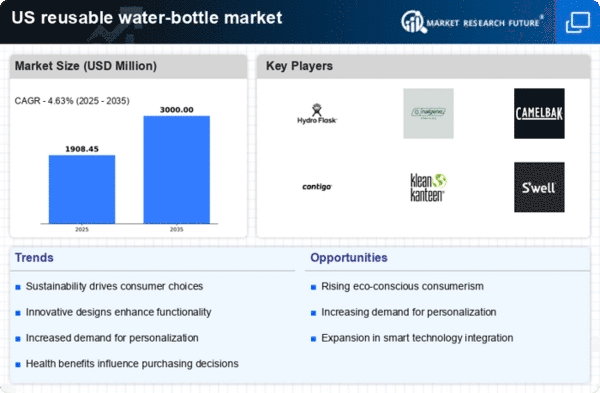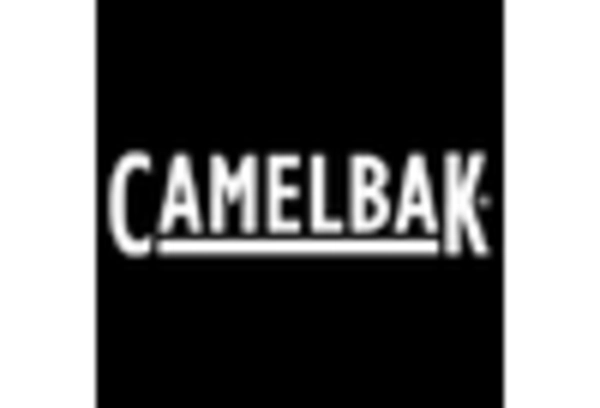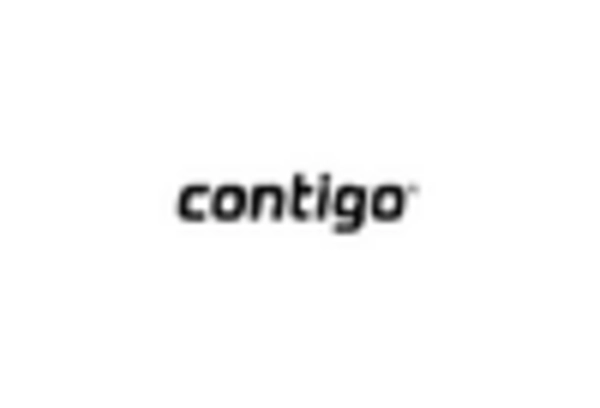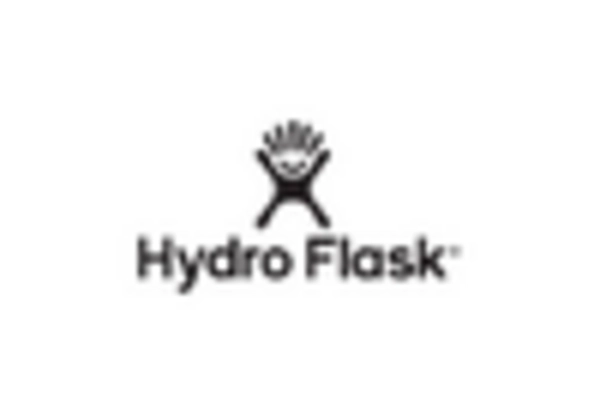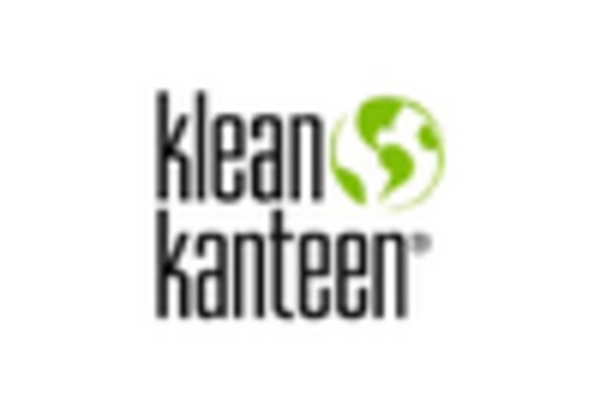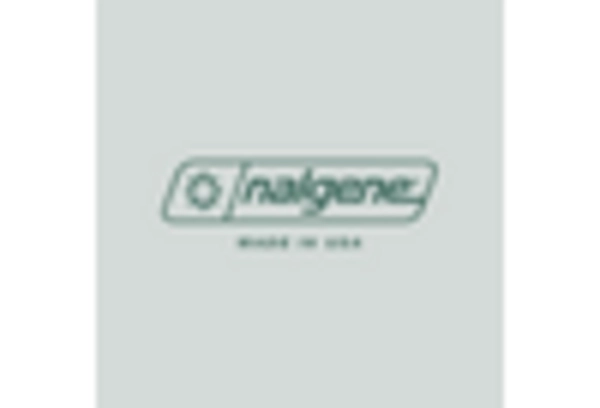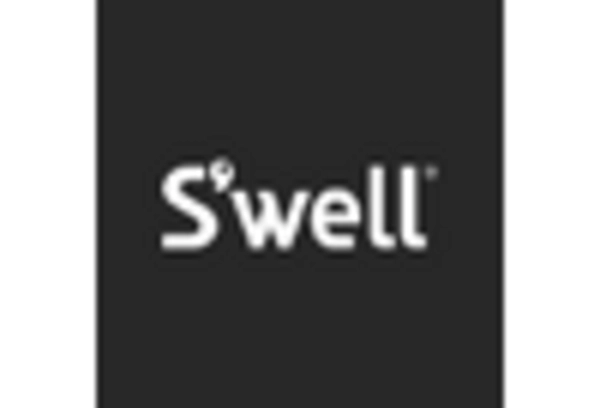E-commerce Growth
The rapid growth of e-commerce is significantly impacting the reusable water-bottle market. With more consumers turning to online shopping for convenience, brands that effectively leverage digital platforms are likely to see increased sales. Data shows that e-commerce sales in the US have surged, with online retail accounting for over 20% of total retail sales. This shift provides an opportunity for reusable water-bottle brands to reach a broader audience, particularly among younger consumers who prefer online shopping. Additionally, the ability to showcase product features through engaging online content can enhance consumer interest and drive purchasing decisions. As e-commerce continues to expand, the reusable water-bottle market is well-positioned to capitalize on this trend, potentially leading to higher market penetration and brand loyalty.
Regulatory Support
Regulatory support for reducing plastic waste is emerging as a crucial driver for the reusable water-bottle market. Various state and local governments in the US are implementing policies aimed at minimizing single-use plastics, which may include bans on plastic bottles in certain public spaces. Such regulations encourage consumers to seek reusable alternatives, thereby fostering growth in the reusable water-bottle market. For instance, cities that have enacted plastic bag bans have seen a corresponding increase in the sales of reusable products. This regulatory landscape not only promotes environmental sustainability but also creates a favorable market environment for brands that specialize in reusable water bottles. As legislation continues to evolve, the reusable water-bottle market is likely to experience heightened demand, driven by both consumer compliance and proactive brand strategies.
Environmental Awareness
The increasing environmental awareness among consumers appears to be a pivotal driver for the reusable water-bottle market. As individuals become more conscious of their ecological footprint, the demand for sustainable alternatives to single-use plastics intensifies. Reports indicate that approximately 70% of consumers in the US express a preference for eco-friendly products, which significantly influences purchasing decisions. This shift in consumer behavior is likely to propel the growth of the reusable water-bottle market, as brands that emphasize sustainability in their messaging and product design may capture a larger share of the market. Furthermore, educational campaigns regarding plastic pollution and its impact on marine life contribute to this heightened awareness, encouraging consumers to opt for reusable solutions. Consequently, the reusable water-bottle market is poised to benefit from this trend as more individuals seek to align their purchasing habits with their environmental values.
Health and Wellness Trends
The growing emphasis on health and wellness among consumers is another significant driver for the reusable water-bottle market. As individuals increasingly prioritize hydration and overall well-being, the demand for high-quality, reusable water bottles rises. Studies suggest that nearly 60% of consumers in the US actively seek products that promote a healthy lifestyle, which includes staying adequately hydrated. This trend is further supported by the rise of fitness culture and the popularity of outdoor activities, where having a reliable water source is essential. Brands that offer innovative designs, such as insulated bottles that maintain temperature or those with built-in filtration systems, may find a receptive audience. Thus, the reusable water-bottle market stands to gain from this health-conscious consumer base, as more individuals recognize the importance of hydration in their daily routines.
Innovative Design and Functionality
The demand for innovative design and enhanced functionality is a notable driver for the reusable water-bottle market. Consumers are increasingly looking for products that not only serve their basic purpose but also offer additional features that enhance usability. This includes bottles with built-in infusers for flavoring water, collapsible designs for portability, and smart technology that tracks hydration levels. Market data indicates that products with unique features can command a premium price, suggesting that innovation plays a critical role in consumer choice. As brands invest in research and development to create multifunctional water bottles, the reusable water-bottle market is likely to see a surge in interest from tech-savvy and design-conscious consumers. This trend indicates a shift towards products that combine practicality with aesthetic appeal, further driving market growth.


